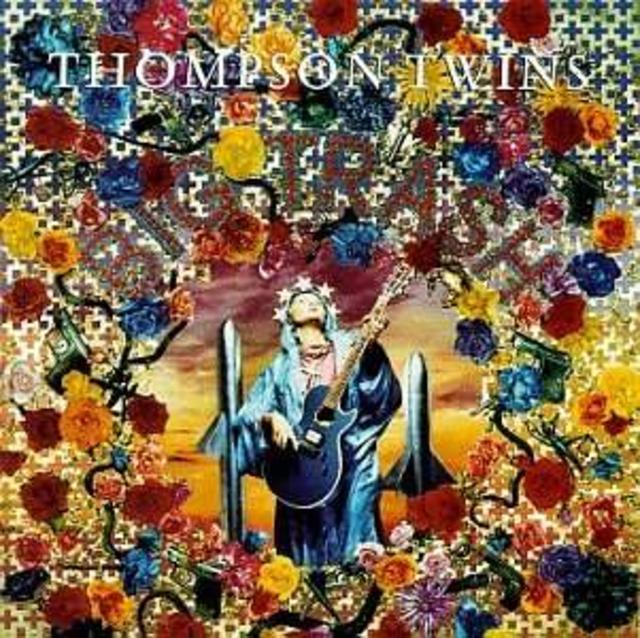Digital Roundup: 6/11/14

New this week in the Rhino Room at iTunes:
Booker T. and the MGs, Green Onions: This week’s Mono Monday release is one of the most fondly-remembered instrumental albums of the rock era, and that’s not just because of the groove of the title track, although goodness gracious knows that it sure doesn’t hurt. Any band who can shift from covers of “I Got a Woman” and “Twist and Shout” into their own take on Acker Bilk’s “Stranger on the Shore” clearly has a lot of range, and they show it off throughout the course of the record. A tiny bit of trivia to close: the last track, “Comin’ Home Baby,” was co-written by Bob Dorough, the same fellow who wrote every song featured in Schoolhouse Rock’s “Multiplication Rock,” from “My Hero Zero” all the way through to “Little Twelvetoes.”
Ronnie Dyson, Phase 2 / Brand New Day: Although he first came to musical prominence as a result of his role in Hair (if you’ve heard “Aquarius,” that’s him singing, “When the moon is in the seventh house / And Jupiter aligns with Mars...”), Ronnie Dyson spent a decent amount of the ‘70s as a success on the R&B charts, even earning a few pop hits in the process. Although his commercial glory days may have been over by the ‘80s, Dyson nonetheless kept at it, releasing two optimistically-titled albums on Cotillion Records: 1982’s Phase 2 and 1983’s Brand New Day. Neither made so much as a ripple on the pop charts, but the former found R&B success with the singles “Heart to Heart” and “Ain’t Nothin’ Wrong,” while the latter provided “All Over Your Face,” which hit #23 on the R&B charts and proved to be his last hit single.
Willie Hutch, In Tune / Midnight Dancer: While much of Willie Hutch’s success came during his time on Motown Records – including his still-awesome theme to the Pam Grier film Foxy Brown – the R&B singer decided to make the jump to Norman Whitfield’s new label, the appropriately-named Whitfield Records, in 1977 for a pair of albums: 1978’s In Tune and 1979’s Midnight Dancer. Commercially speaking, it proved to be a terrible move, with Hutch only earning two minor hit singles during his time on the label (“Paradise” and the brilliantly titled “All American Funkathon”), and when Midnight Dancer failed to even chart, he returned to Motown. Still, if you’re a fan of glossy late ‘70s R&B, you’ll want to check these albums out.
Eddie Kendricks, Love Keys: While unquestionably known far better for his work as a member of the Temptations than as a solo artist, Eddie Kendricks did have several substantial hit singles on his own. Unfortunately, none of them were on 1981’s Love Keys, his lone album for Atlantic, but he did pick up a bit of airplay with “(Oh I) Need Your Loving,” which made it to #41 on the R&B charts before beginning its descent. Add to that the general critical disdain for the album, and, well, we don’t want to say that it’s for completists only, but…we don’t know how else to finish that sentence.
Charles Lloyd, The Best of Charles Lloyd: From 1966 to 1968, jazz saxophonist and flautist Charles Lloyd put out some pretty great stuff on Atlantic Records with his quartet, which also featured Keith Jarrett, Ron McClure, and Jack DeJohnette. We wouldn’t dare suggest that any of that material is anything less than indispensable, but if you’re looking for a sampling of Lloyd’s work from that era, this is a pretty good one.
Maria Muldaur, Maria Muldaur: You may only know Maria Muldaur’s self-titled debut album from its most famous single, “Midnight at the Oasis,” but if that’s caused you to dismiss it, you should consider that, at the time of its release, Rolling Stone’s Jon Landau called it "the kind of glorious breakthrough that reminds me why I fell in love with rock & roll." You still might not like it, but we’re just saying that, all things considered, it’s probably way more substantial a piece of work than you realized.
Elaine Paige, Cinema/Love Hurts/Piaf: What are the odds that we’d have two singers in this Digital Roundup who found their first substantial success in a production of Hair? Unlike Ronnie Dyson, Elaine Paige was part of the West End production, but it still proved to be a major career kickstarter for her, as proven by the fact that she continues to perform and record to this day. These albums, however, are from her back catalog: Cinema and Love Hurts were released in 1984 and 1985, respectively, and feature Paige tackling a variety of covers under the watchful ear of producer Tony Visconti, while 1994’s Piaf collects songs featured in the musical of the same name.
Thompson Twins, Big Trash/Queer: When most listeners think “Thompson Twins,” they think – for better or worse – of the twinless trio’s work on Arista Records, but when the group jumped to Warner Brothers in 1989, they kicked off their short stint on the label with an album which was, at least creatively speaking, an extremely strong effort. You may even remember “Sugar Daddy,” the first single from Big Trash, which made it to #28 on the pop charts and all the way to #2 on the dance charts. Unfortunately, the follow-up album, Queer, which would prove to be the Twins’ swan song, found far less success (although at least one single, “Come Inside,” was a #7 dance hit), and the next time fans received a new album from Tom Bailey and Alannah Currie, it was under the auspices of a group called Babble.